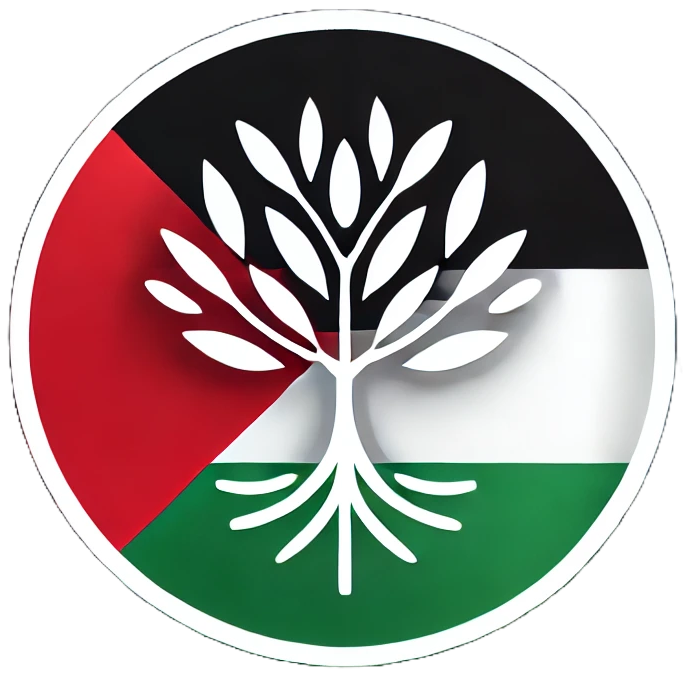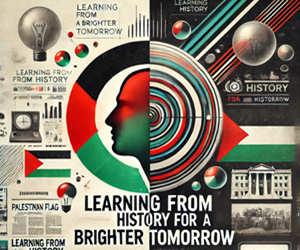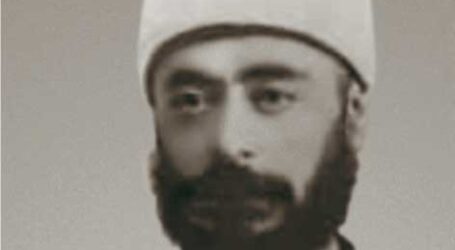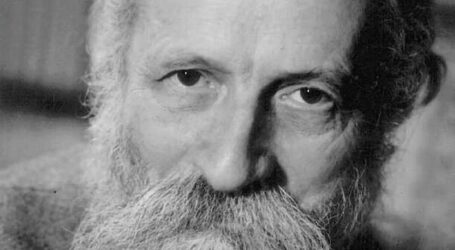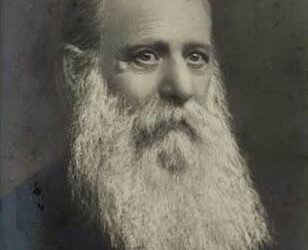Mordecai Manuel Noah: Biography
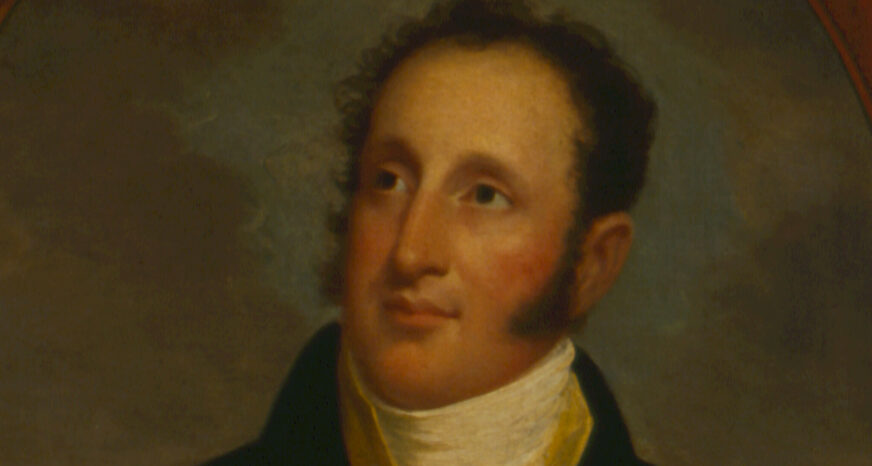
Born: July 14, 1785, Philadelphia;
Died: May 22, 1851, New York1
Mordecai Manuel Noah was a Jewish-American diplomat, playwright, journalist, utopian, and activist. He was born on July 14, 1785 in Philadelphia and was of Portuguese Sephardic descent. His grandfather Jonas Phillips was an active member of the Jewish community, founding the Sephardic synagogue Mikveh Israel and serving as its President in Philadelphia. When Mordecai was just 6 years old, his mother Zipporah died and his father soon disappeared. So he was entrusted to his grandfather Jonas. He owed much of his knowledge on Jewish history to his grandfather. 2
He became a playwright where he found some success and became an important figure among 19th century dramatists, yet he never made money from his calling and couldn’t make a living off of it. He thus tried his hand at politics, where he would become the American Consul to Tunis in 1813 at 28 years old. He successfully negotiated the release of American captives taken by Berber pirates, but received a letter from the United States State Department signed by Secretary of State and future President James Monroe which read “at the time of your appointment, as Consul of Tunis, it was not known that the RELIGION which you profess would form any obstacle to the exercise of your Consular functions. Recent information, however, on which entire reliance may be placed, proves that it would produce an unfavourable effect… the President has deemed it expedient to revoke your commission.”3 After the American captives were released, Noah returned to the U.S. where he was paid in full the balance he was owed by the State Department and no mention of the religious issue was made. He then worked as a journalist and was appointed Sheriff of New York County.
In 1825, Mordecai Manuel Noah proposed a plan of establishing a Jewish territory in the United States. The territory was Grand Island, a wooden territory in the Niagara River. He purchased the land along with help from American Christians and believed it to be a temporary refuge for Jews from around the world. Noah’s temporary Zion in the United States was to be called Ararat, which he named after the mountain that Noah’s Ark had landed upon in the Hebrew Bible. He believed that the time presented itself in which a Jewish state would be established. In his work, Discourse on the Restoration of the Jews he wrote that “the Jews are in a most favorable position to repossess themselves of the promised land, and organize a free and liberal government.”4 He gave evidence that “within the last twenty-five years great revolutions have occurred in the east… Turkey has been deprived of Greece… Egypt has conquered and occupied Syria… Mehment [Mohammed] Ali was compelled to submit to the commander of the faithful [Amir al-Mu-minin], reconveying Syria to Turkey, and was content to accept the hereditary possession of Egypt… Russia, with a steady glance and firm step, approaches Turkey in Europe.”5 He reached out to various Jewish community leaders to support the project and help organize immigration, but the response by them was almost universally negative. The Jews in Western and Central Europe did not heed his call, because “they needed no City of Refuge, or so they believed. As for the Jews of Eastern Europe, they were not even permitted to learn of the proclamation. The text was suppressed by the police in both the Russian and Austro-Hungarian Empires.”6 Though Mordecai Manuel Noah believed in establishing a Jewish territory in the United States, he viewed it as a temporary solution. He wrote, “every attempt to colonize the Jews in other countries has failed; their eye has steadily rested on their own beloved Jerusalem and they have said ‘The time will come, the promise will be fulfilled.’”7 His plan for Jewish return to their homeland consisted of a few steps which he wrote as “the first step is to solicit from the Sultan of Turkey permission for the Jews to purchase and hold land; to build houses, and to follow any occupation they desire, without molestation and in perfect security.”8
Even though Noah failed in his venture in establishing Ararat, it did not diminish his stature in the United States. He continued to work and take an active part in Jewish community life until his death on May 22, 1851.
- Noah, Mordecai M. Discourse on the Restoration of the Jews. Harper, Jewish Publication Society of America, 1844. ↩︎
- Gordis, Robert. “MORDECAI MANUEL NOAH: A CENTENARY EVALUATION.” Publications of the American Jewish Historical Society 41, no. 1 (1951): 1–26. http://www.jstor.org/stable/43059806. ↩︎
- Ibid. ↩︎
- Noah, Mordecai M. Discourse on the Restoration of the Jews. Harper, Jewish Publication Society of America, 1844. ↩︎
- Ibid. ↩︎
- Gordis, Robert. “MORDECAI MANUEL NOAH: A CENTENARY EVALUATION.” Publications of the American Jewish Historical Society 41, no. 1 (1951): 1–26. http://www.jstor.org/stable/43059806. ↩︎
- Noah, Mordecai M. Discourse on the Restoration of the Jews. Harper, Jewish Publication Society of America, 1844. ↩︎
- Ibid. ↩︎
